
Gerard Criner, MD, FACP, FACCP, MATINEE investigator, highlights trial results that showed reduced exacerbations and delayed disease progression in patients with eosinophilic chronic obstructive pulmonary disease (COPD).

Gerard Criner, MD, FACP, FACCP, MATINEE investigator, highlights trial results that showed reduced exacerbations and delayed disease progression in patients with eosinophilic chronic obstructive pulmonary disease (COPD).

Emma Achola-Kothari, PhD, highlights the need to expand Medigap access for Medicare beneficiaries younger than 65 years and calls for future research connecting access barriers to health outcomes.

The Trump administration could consider all sides of the federal rule before making a permanent decision on its potential repeal.
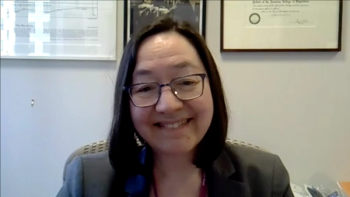
Margrit Wiesendanger, MD, PhD, discusses how lupus treatment is evolving from traditional therapies to more targeted options like biologics, with promising advances now being explored in clinical trials.

Emma Achola-Kothari, PhD, explains that younger Medicare beneficiaries without supplemental coverage face high costs, while dual-eligible beneficiaries in Medicare Advantage plans struggle with provider access.


Minimally invasive glaucoma surgery offers alternatives for patients looking for methods of treating glaucoma without affecting quality of life.

Toby Maher, MD, PhD, professor of clinical medicine, Keck School of Medicine at USC, shares trial findings from the FIBRONEER-IPF (NCT05321069) and FIBRONEER-ILD (NCT05321082) studies on nerandomilast.
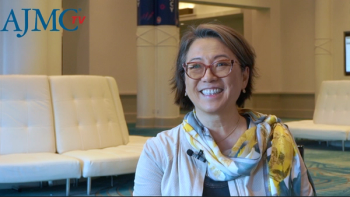
While artificial intelligence (AI) is transforming community oncology, Nini Wu, MD, of Navista, emphasizes that success depends on patient access and infrastructure.

The ALPHA3 trial is exploring cemacabtagene ansegedleucel's (cema-cel) potential to enhance outcomes in patients who have relapsed/refractory large B-cell lymphoma, particularly those positive for minimal residual disease.

Emma Achola-Kothari, PhD, explains that Medicare beneficiaries younger than 65 years without supplemental coverage face greater financial and access barriers to care, while dual-eligible individuals experience fewer of these challenges.
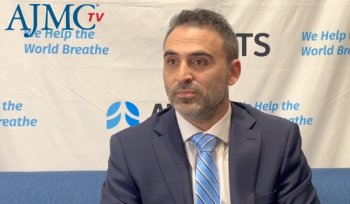
Matthew Viggiano, MD, internal medicine resident, Temple University Hospital, shares findings on a study in which female patients with interstitial lung disease (ILD) admitted to the intensive care unit (ICU) experienced significantly lower mortality rates and shorter hospital stays than male patients with ILD.
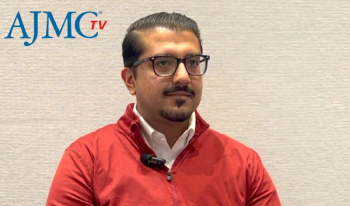
Krunal Patel, MD, pulmonary and critical care fellow, Temple University Hospital, discusses how early intervention within 12 hours improved hemodynamic measurements and clinical outcomes in patients with pulmonary embolism.

Explore how employers enhance workplace mental health by fostering a culture of support and engagement, focusing on holistic well-being strategies in this interview with Jim Kinville, MA, University of Pittsburgh Medical Center.
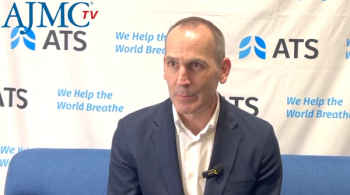
M. Bradley Drummond, MD, MHS, professor of medicine, University of North Carolina at Chapel Hill, shares promising results of ensifentrine in helping patients with insufficient chronic obstructive pulmonary disease (COPD) control.

Margrit Wiesendanger, MD, PhD, explores lupus symptoms, diagnosis challenges, and the importance of early detection to prevent inflammation-related damage.
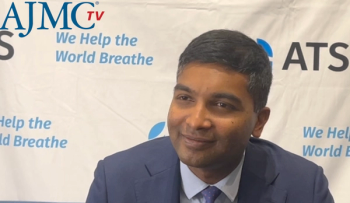
Sanjay Ramakrishnan, MD, senior lecturer, University of Western Australia, discusses the value of the win ratio approach in evaluating treatment effects in chronic obstructive pulmonary disease (COPD).
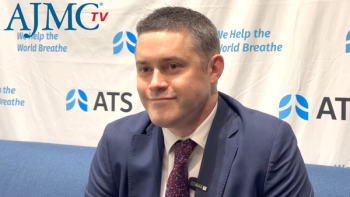
Michael Goulet, DO, pulmonary and critical care fellow, Temple University Hospital, shares findings on the impact of wildfire smoke on hospital admissions and health care utilization in the Northeast.

Meaningful transformation in health care requires ongoing, collaborative efforts, explained Eboni Price-Haywood, MD, MPH, MMM, Xavier Ochsner College of Medicine; and Toni Flowers, PhD, DHL, MBA, LCMC Health.

Employers discover innovative strategies for enhancing employee engagement and access to care at the Greater Philadelphia Business Coalition on Health (GPBCH) Annual Conference, fostering actionable dialogue and collaboration.

Jessica Horwitz, MPH, FNP-C, emphasizes the importance of accessible preventive care and health education, the interconnectedness of mental and physical well-being, and the need for women, providers, and policymakers to prioritize comprehensive and depoliticized women's health care.

Constance Blunt, MD, medical oncologist, Mary Bird Perkins Cancer Center, discusses some of the recent trends in cancer detection, screenings, and resource utilization in community oncology.

Employers explore innovative strategies at the Greater Philadelphia Business Coalition on Health (GPBCH) Annual Conference, focusing on GLP-1 policies to enhance health care quality and manage costs effectively.

Pieter Sonneveld, MD, PhD, professor of hematology and chair of the Erasmus MC Cancer Institute in Rotterdam, Netherlands, discussed the continued use of subcutaneous daratumumab following initial treatment, as well as the changing landscape of multiple myeloma treatment.

Mohit Narang, MD, explains why he switches patients with chronic lymphocytic leukemia (CLL) to the second-generation Bruton tyrosine kinase inhibitor.

Sandeep Sahay, MD, FCCP, director of the Pulmonary Hypertension Program, Houston Methodist Hospital, previews key topics of this year's American Thoracic Society (ATS) conference.

Jessica Horwitz, MPH, FNP-C, highlighted the crucial need for public health professionals and health care providers to address the intersectionality of women's health by acknowledging diverse experiences and ensuring equitable, coordinated care that goes beyond physical health.

Jessica Horwitz, MPH, FNP-C, advocated leveraging Women's Health Week to promote comprehensive and depoliticized women's health care, destigmatizing pelvic floor health, and integrating mental health into primary care.

Future research into non-Hodgkin lymphoma treatments needs to explore long-term outcomes and a better understanding of the biologic rationale for various treatments, explained ECHELON-3 principal investigator Craig A. Portell, MD, of UVA Health.

Christine Funke, MD, explains minimally invasive glaucoma surgery and what types are available for patients.

259 Prospect Plains Rd, Bldg H
Cranbury, NJ 08512
© 2025 MJH Life Sciences®
All rights reserved.
